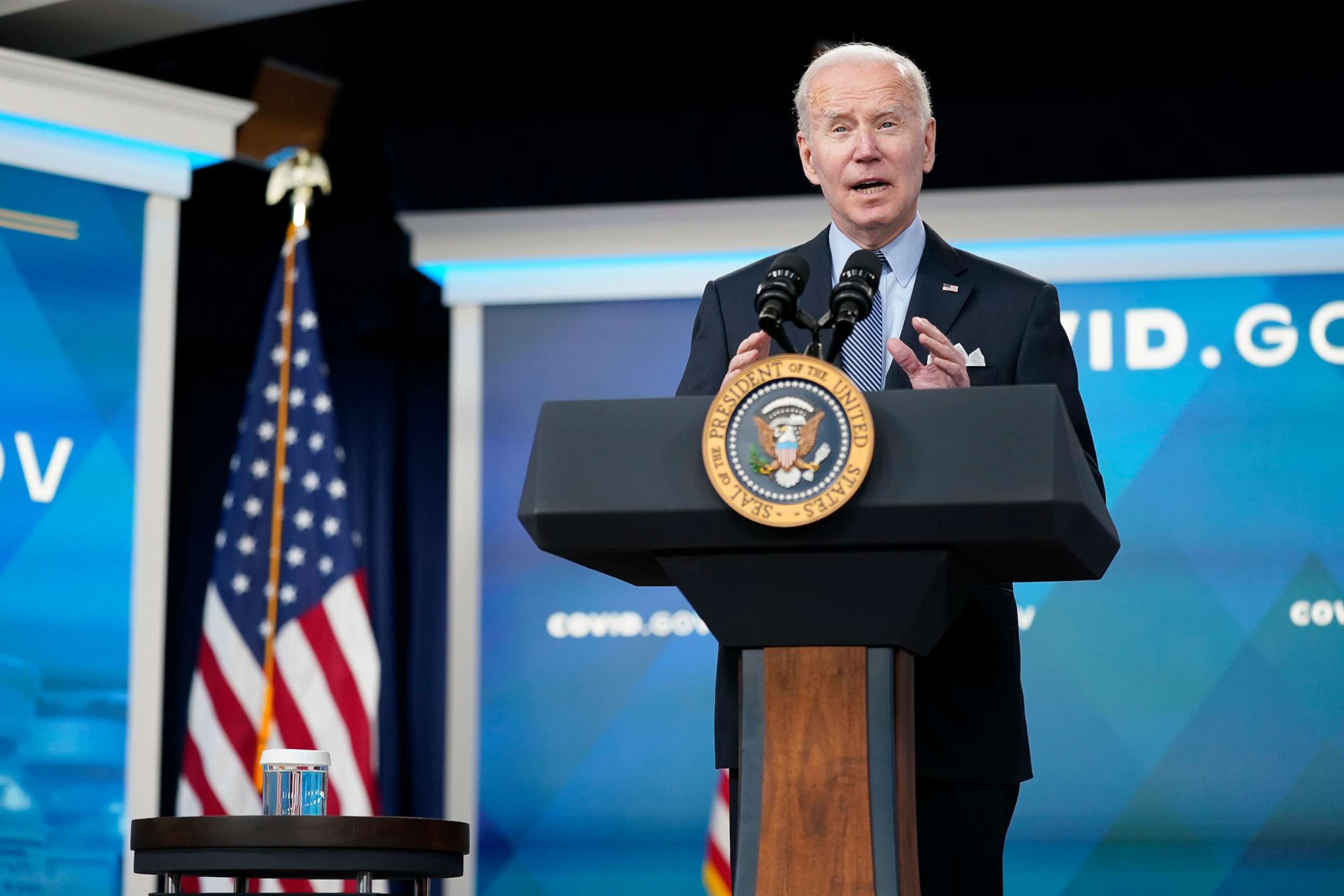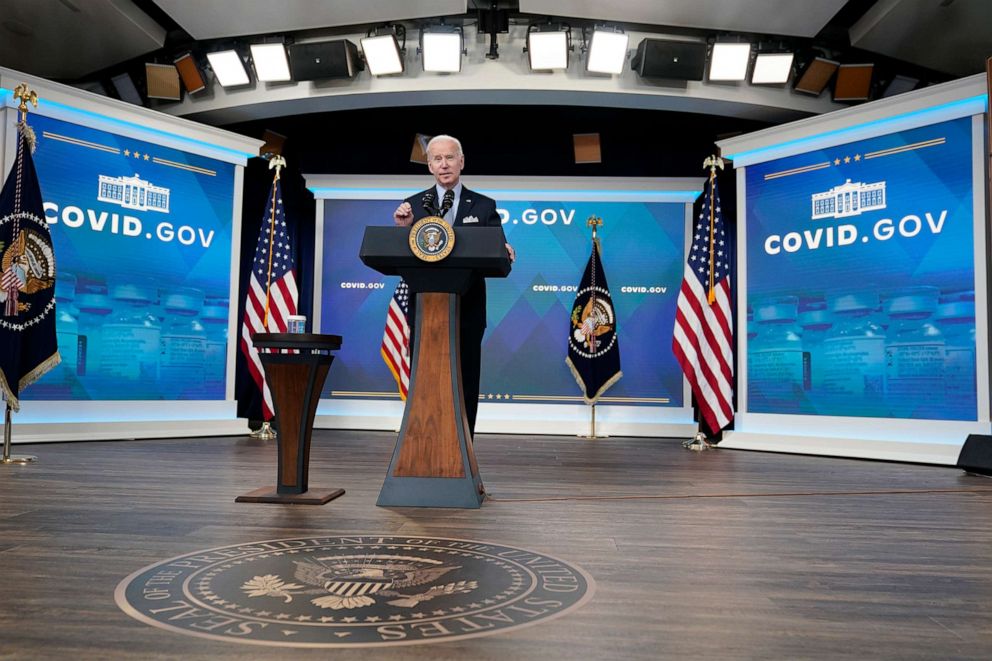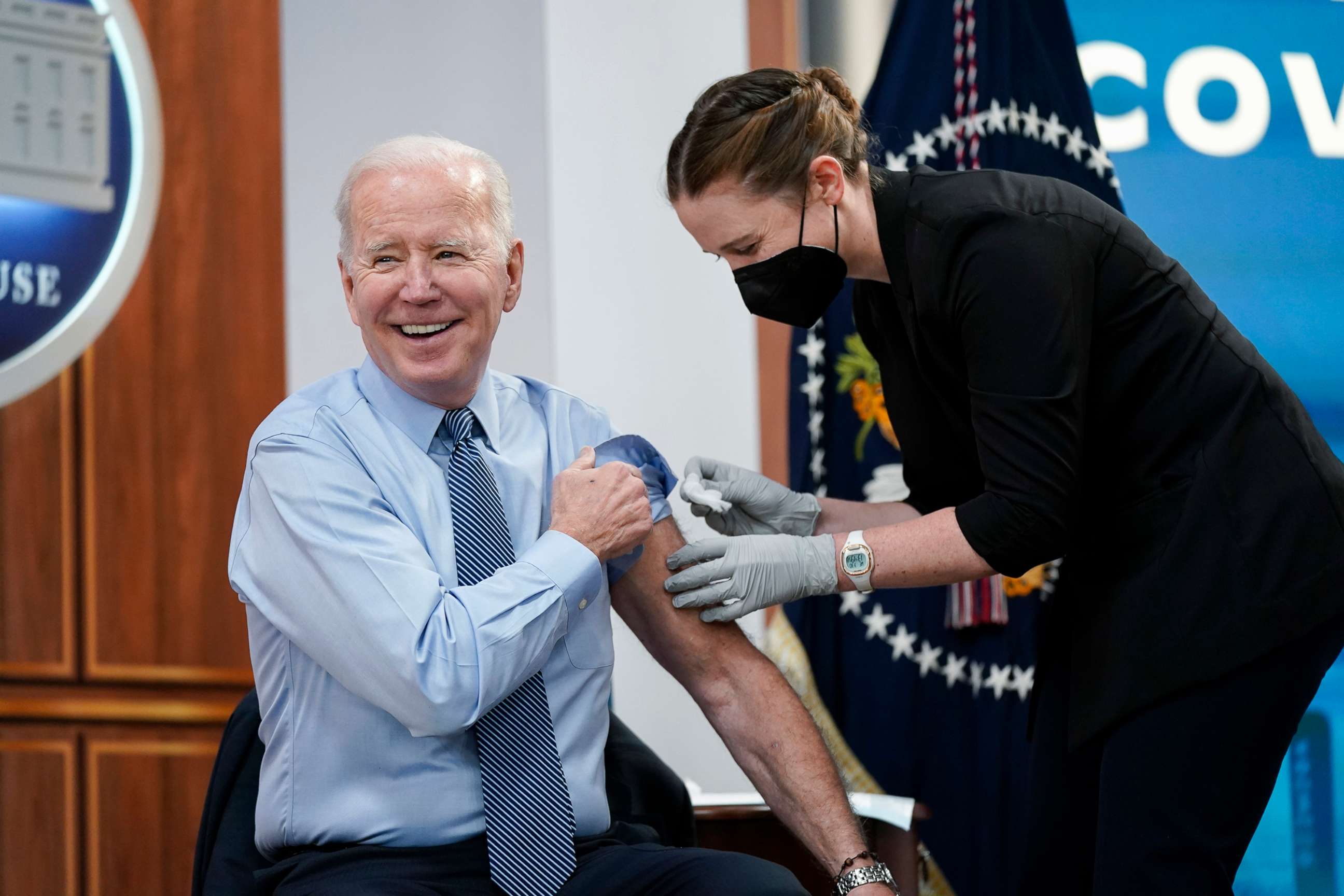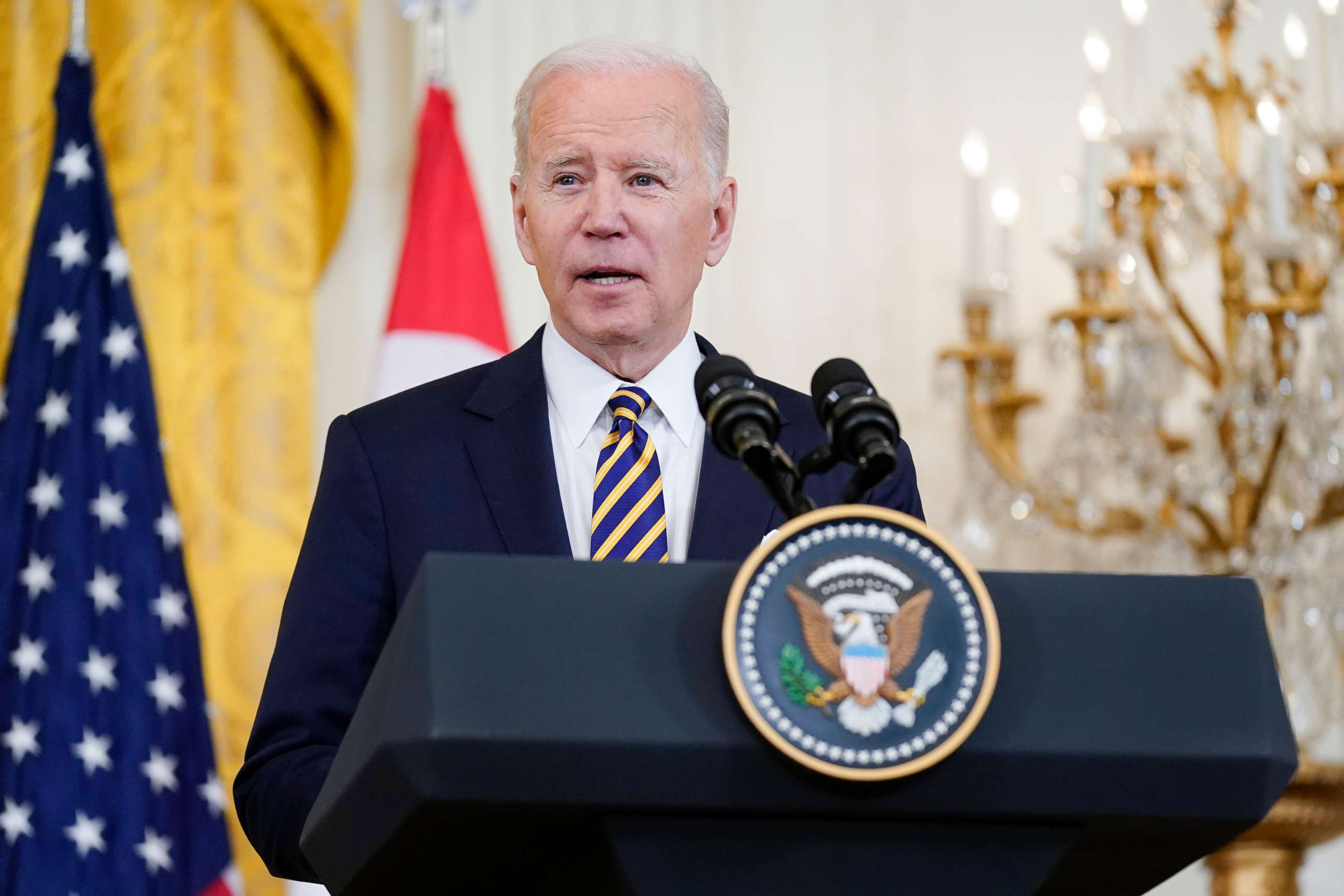Biden gets 2nd booster after outlining dire need for COVID funding
The president made remarks Wednesday afternoon about the state of the pandemic.
President Joe Biden received his second booster shot before television cameras on Wednesday following remarks at the White House about the state of the country's COVID response.
Biden's speech promoted the launch of COVID.gov, a new website the White House is billing as a "one-stop shop" to help Americans get better access to prevention and care -- as well as area-specific updates on COVID-19 spread.
"The bottom line, no longer will Americans have to scour the internet to find vaccines, treatments, tests, or masks. It's all there," Biden said.

The website leads users to locations where they can get vaccines, boosters and masks, and it connects people with another White House website to order free at-home rapid tests.
The president also highlighted that the "Test to Treat" initiative he announced at the State of the Union has already expanded to over 2,000 sites nationwide and now through COVID.gov's new "Test to Treat Locator," Americans can readily find pharmacies and community health centers to get tested for COVID-19 and receive treatments if needed.
Notably, many of the COVID response efforts available on COVID.gov are the same things the White House says are in jeopardy of running out in the coming weeks and months if more funding is not approved.
Administration officials for weeks have been ringing alarm bells about the critical need for more COVID funding, warning of the severe consequences for Americans.

Biden on Wednesday sent what a White House official called an "urgent, direct message to Congress" to act swiftly to secure funding for the administration's COVID response.
"We have enough tests on hand to weather the surge. But without funding, we're not going to be able to sustain the testing capacity beyond the month of June. And if we fail to invest, we leave ourselves vulnerable if another wave of the virus hits," Biden said.
Last week, the fund to cover testing and treatment for uninsured Americans ran out of money, leaving people to pay as much as $125 out of pocket if they get PCR testing at labs like Quest Diagnostics, one of the biggest in the country.
The funding to cover the cost of administering vaccines for uninsured people will run out next week. At the same time, monoclonal antibody treatment supplies distributed to states each week has been cut by 35%. And the U.S. supply could run out entirely by May if funding isn't secured -- a point Biden hit on.

"Take monoclonal antibodies, for example, they've helped save lives. This isn't partisan, it is medicine -- but Congress hasn't provided enough money to keep purchasing these monoclonal antibodies. We've had to cancel planned orders and cut the supply we're sending to the states. Without more funding, we'll start to run out of them by the end of May," he said.
The government says it has enough tests to get to the summer, but if there's another surge, the country will again be caught flat-footed like it was during the omicron wave.

"You could see, again, a gap in access to at-home testing," Andrea Palm, deputy secretary of Health and Human Services, told reporters last week.
The White House has said without additional funding, "the results are dire" -- one official told ABC News earlier this month, "Simply put, failing to take action now will have severe consequences for the American people."
The White House has asked for $22.5 billion in immediate aid to keep COVID-19 programs afloat. Congress whittled that request down to $15 billion before cutting it from a spending bill entirely in early March. Since then, the White House has urged Democrats and Republicans on the Hill to come to an agreement, but negotiations remain at a stalemate.
ABC News' Justin Gomez contributed to this report.




